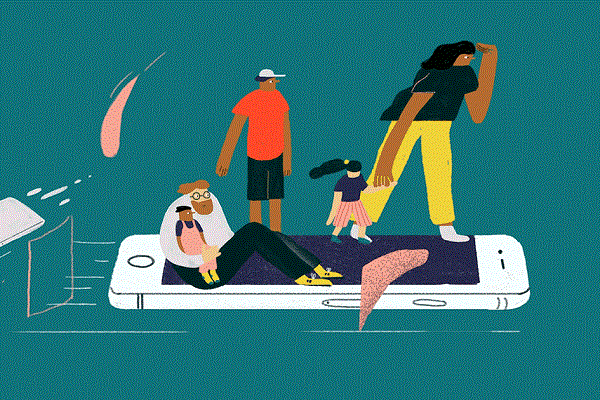Thanks to the internet, smartphones, computers, and more digital advancements, there has been significant beneficial evolution in the way of life.
Technological development continues to accelerate, and people continuously find new ways to conveniently use technology in their daily lives and businesses. As a result, it has immensely impacted the following essential aspects of our everyday life.
Remote work
Perhaps the most significant way technology has changed life and work is by making virtual work possible. Technology advancements have led to a rise in remote work, allowing people to live and work from home and adopt the digital nomad lifestyle.
Virtual employment makes people more efficient and productive because they can work whenever they need to without interruptions or distractions.
Remote workers do not need to spend money on commuting costs and save on gas, car insurance, and other transportation-related expenses. Plus, they can avoid stressful traffic jams during rush hour or unpredictable weather conditions while driving.
However, there is the worry that working online will increase isolation, as virtual workers might lack a social life outside their jobs.
Communication
In the past, if you wanted to communicate with someone, you would have to either meet them in person or send them a letter.
Nowadays, smartphones, computers, and tablets aid in communication worldwide. Similarly, you can use messaging and social media platforms for audio and video chats and instantly share information. Messaging also helps keep in touch with clients and constant communication amongst work colleagues.
The downside of relying on technology for communication is a decline in interpersonal skills, as people rarely meet to socialize. Information shared through online communication is also at risk of data security threats.
Financial transactions
To send or receive money in the past, you had to go to a physical bank and fill out paperwork. Now, several apps and websites allow online banking, eliminating the need to go to banks frequently.
Use your phone or debit and credit cards linked to your bank account to make payments at retail stores. You can transfer your paychecks directly to your bank account using relevant apps. Mobile banking facilitates rapid international transactions and eliminates the need to carry large sums of cash.
However, as people rely more on technology for our day-to-day transactions, fraud becomes more common, making it essential to be vigilant about protecting your data. Safeguarding your data will help protect you and your loved ones from identity theft, which has devastating consequences.
Health care
Earlier, if you were sick or injured, you would have to go to a hospital or doctor’s office and wait for an appointment. Various apps now allow you to connect with a doctor conveniently from home, saving time and transport costs.
You can also use devices like smartwatches to track your fitness goals, monitor your heart rate, and more. Cloud backup eliminates frustrating paperwork and makes it simpler for doctors and clients to access health records.
Nonetheless, eliminating personal meetings between doctors and patients may lead to an improper diagnosis of diseases and symptoms.
Data management
Data security systems are easy to install, require minimal maintenance and help safeguard your information. Features like two-factor authentication and fingerprint scanners ensure your information is safe from hackers.
In addition, storing information on computers rather than in physical forms eliminates paperwork at risk of being accessed by unauthorized personnel.
The downside of using data management systems is potential breaches.
Shopping
You had to physically go to the store, hope they had what you were looking for in stock, and then wait in line to check out in the past. Today, you can shop from the comfort of your home with just a few clicks through platforms like Amazon and eBay.
E-commerce businesses allow you to order groceries, medicines, books, and more. Such enterprises offer shipping and delivery services. However, online shopping makes you lack physical interaction with products before purchasing and may experience delivery delays.
Entertainment
Due to technological advancements, you can stream movies and TV shows from the comfort of your home using services like Netflix, Hulu, and Amazon Prime.
Technological progress has also resulted in the evolution of video games that you play with your friends. Gamics can now access golf simulators, launch monitors, and other complex indoor games online. Combined with virtual and augmented reality, video games are even more thrilling and entertaining.
You can even play sports indoors with the help of today’s technological innovations. Golf, for one, can be enjoyed without leaving your home by installing the latest high-tech golf simulator selections available. These can capture data about your swing, launch angle, and many more, which will help make you a better player.
One downside of the advancement in entertainment is spending too much time on digital devices, which may affect your concentration span.
Tourism
With the internet, travelers can book taxis, airplane tickets, hotels, and restaurants using mobile devices. Using digital devices makes planning a vacation more manageable and convenient.
Yet, the increased dependence on technology has caused people to lose the ability to appreciate their surroundings when traveling.
Wrapping up
Technology has made life easier by making you more productive and efficient. However, it is essential to note that technology has some downfalls to its use. Overall, technology has positively impacted lives and will continue to do so in the future.

No comments:
Post a Comment